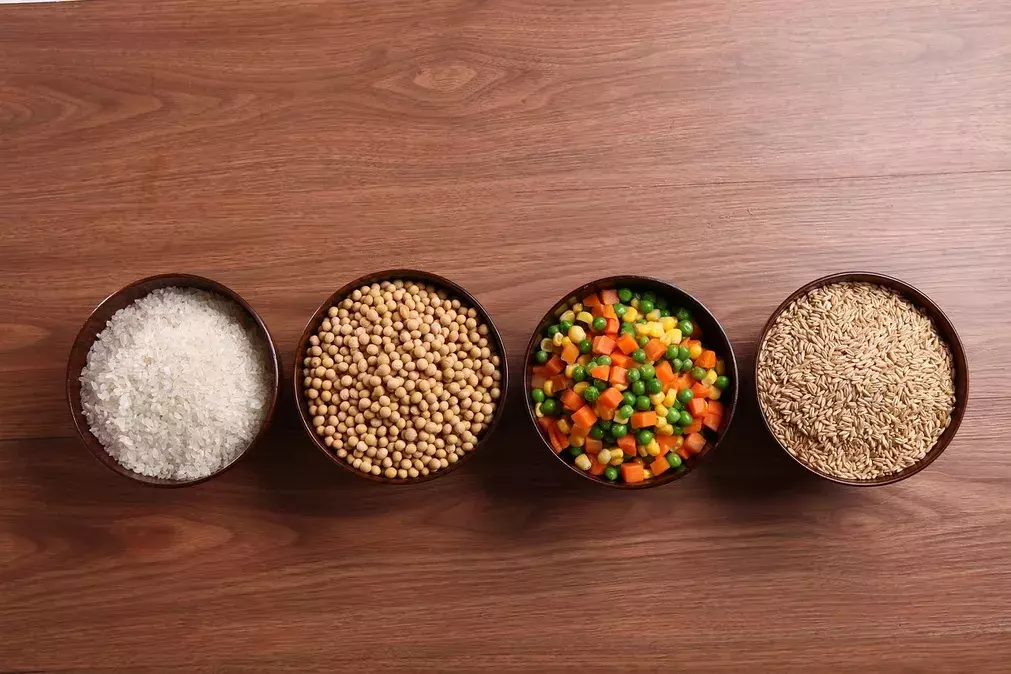Table of Contents
Creating a healthier lifestyle for long-term weight management starts with understanding and implementing the right strategies. Here’s a detailed guide to help you succeed.
1. Embrace Balanced Nutrition
Balanced nutrition is fundamental to effective weight loss. It’s about making informed food choices that nourish your body.

- Fruits and Vegetables:
- Aim for Variety: Incorporate a wide range of fruits and vegetables in your diet. Different colors indicate different nutrients, so aim for a colorful plate with leafy greens (like spinach), vibrant peppers, oranges (like carrots), and deep blues (like blueberries or blackberries). This diversity not only provides essential vitamins but also keeps meals interesting and enjoyable.
- Meal Prep: Prepare meals and snacks ahead of time, such as chopping vegetables for salads or creating smoothie packs with your favorite fruits. When healthy options are ready to grab and go, you’re less likely to resort to unhealthy choices when hungry.
- Whole Grains:
- Gradual Transition: If you currently consume refined grains (like white bread and pasta), start integrating whole grains slowly, such as quinoa, bulgur, or brown rice. Gradually mixing white grains with whole grains can help your palate adjust without overwhelming you.
- Explore Alternatives: Try introducing a variety of grains into your meals. Quinoa is high in protein, oats are great for breakfast, and barley can make a hearty addition to soups and stews. Whole grains keep you full longer due to their fiber content, aiding in appetite control.
- Lean Proteins:
- Portion Control: Understanding proper serving sizes (like a palm-sized portion for chicken or fish) helps avoid overeating. Many recommend aiming for protein at every meal, as it can also help regulate body weight by reducing cravings.
- Plant-Based Options: Incorporate proteins from plant sources, such as beans, lentils, and tofu. Besides being lower in calories, they also provide fiber, which aids digestion and increases feelings of fullness.
- Healthy Fats:
- Choose Wisely: Incorporate sources like avocados, nuts, seeds, and olive oil into your diet. Healthy fats not only provide essential fatty acids but also help keep you satiated longer, reducing the temptation for unhealthy snacks.
- Mind Portion Sizes: While healthy, remember that fats are calorie-dense. Pay attention to portions; for example, a serving of nuts can be about a small handful, or two tablespoons of olive oil for cooking or dressing salads.
2. Practice Mindful Eating
Mindful eating involves being fully present during meals, which can lead to a more positive relationship with food.

- Eliminate Distractions:
- Create a Calm Environment: Design a calming eating space. Consider dimming the lights, playing soft music, or even lighting candles to enhance your dining experience. This intentionality encourages you to focus on and enjoy your meal.
- Focus on Your Sensations: Before eating, take a moment to appreciate the appearance, aroma, and texture of your food. Engaging your senses can heighten the enjoyment of eating, making it easier to recognize the satisfaction each bite provides.
- Savor Each Bite:
- Slow Down: Encourage yourself to put down your fork between bites and take a breath. This practice helps to slow your eating pace and gives your brain time to send signals of fullness.
- Use Smaller Plates: Research shows that smaller plates can lead to reduced portion sizes. This visual trick can make meals appear larger while controlling calorie intake.
- Listen to Your Body:
- Hunger Signals: Practice checking in with yourself regarding hunger levels before meals and snacks. Learn to differentiate between true hunger and emotional or situational eating.
- Stop When Full: Create a habit of assessing fullness. Start practicing with the hunger scale (1-10) and try to stop eating when you reach around a 6-7 to develop a better understanding of your body’s cues.
3. Stay Active
Regular physical activity is crucial for maintaining a healthy weight and overall well-being.
- Start Small:
- Daily Walks: Begin with short, manageable walks. Gradually increase the distance or pace as your fitness improves. Walking for even 10-15 minutes can yield significant benefits over time.
- Flexible Time Slots: Incorporate movement in different segments throughout your day rather than intensive workouts. This could mean 5 minutes of stretching here and 10 minutes of walking there, accumulating more activity without overwhelming yourself.
- Mix It Up:
- Explore Different Activities: Trying various activities can keep you engaged. Join classes for yoga, dance, swimming, or martial arts. The more enjoyable it is, the more likely you are to stay committed.
- Incorporate Strength Training: Aim to include strength training at least two days a week. Resistance training builds muscle, which can increase your metabolic rate and help with weight loss.
- Make It Social:
- Group Classes: These can enhance accountability and motivation. You might find new friends and develop a support network through group fitness activities, making exercise a social event rather than a chore.
- Workout Buddies: Having a friend join you can keep you motivated and make exercising more enjoyable. Plus, you can inspire each other, share goals, and celebrate milestones.
4. Get Adequate Sleep
Adequate sleep is crucial for effective weight management and overall well-being.
- Create a Relaxing Bedtime Routine:
- Wind Down: Engage in relaxing activities like yoga or reading before bed. Establishing a calming routine signals your body to prepare for sleep.
- Set a Schedule: Going to bed and waking up at the same time every day helps regulate your circadian rhythm, leading to better quality sleep.
- Limit Screen Time Before Bed:
- Blue Light Management: Dimming the lights in your home and avoiding screens for at least an hour before bedtime can reduce the impact of blue light on melatonin production, enhancing sleep quality.
- Prioritize Relaxation: Use this time for calming activities—meditation, gentle stretches, or even journaling to process the day.
- Maintain a Consistent Sleep Schedule:
- Short Naps: If you need a rest, keep naps short (around 20-30 minutes) to avoid grogginess and ensure it doesn’t interfere with nighttime sleep.
- Comfortable Sleep Environment: Invest in a comfortable mattress and ensure your bedroom is conducive to rest—quiet, dark, and cool.
5. Stay Hydrated
Hydration is vital for health and plays a crucial role in supporting weight loss.
- Carry a Water Bottle:
- Stay Mindful: Keeping water easily accessible encourages you to drink throughout the day. You might set reminders to sip water at regular intervals or associate hydration with specific times of the day (like meals or after bathroom breaks).
- Infuse for Flavor: Adding fruits like berries, citrus slices, or herbs like mint or basil can make water more appealing without adding significant calories, encouraging increased consumption.
- Make It a Habit:
- Routine Reminders: Establish a routine by drinking a glass of water upon waking, before meals, and after exercise. This consistently reminds your body to hydrate.
- Track Intake: Consider using apps that allow you to monitor water consumption, aiming for at least eight 8-ounce glasses daily, or more depending on your activity level and climate.
6. Set Realistic Goals
Establishing achievable goals is essential for maintaining motivation throughout your weight loss journey.
- Be Specific:
- SMART Goals: Create precise and detailed goals that outline what you want to achieve and how you plan to do so. Instead of saying, “I want to lose weight,” write “I aim to lose 1-2 pounds per week by walking for 30 minutes daily and tracking my food intake.”
- Break Down Larger Goals: Share your larger goals into smaller, incremental steps so you can celebrate each success along the way. This fosters confidence and strengthens positive behaviors.
- Track Your Progress:
- Journaling: Maintain a daily journal to log meals, physical activities, and feelings. This not only provides accountability but also helps identify patterns and areas needing improvement.
- Apps: Many mobile applications can record meals and fitness, offering insights based on your data. This feedback can help you make necessary adjustments.
- Don’t Be Too Hard on Yourself:
- Embrace Setbacks: Understand that fluctuations are a normal part of any weight loss journey. Instead of seeing setbacks as failures, analyze what went wrong, learn from it, and redirect your goals positively.
- Celebrate Achievements: Recognize all types of progress, including making healthier food choices, increased activity levels, or even improved sleep quality. Small steps contribute to the bigger wins.
7. Seek Support
Building a support network can significantly influence your weight loss journey positively.

- Join a Support Group:
- Find Community: Explore local meet-ups, online forums, or community programs focused on health and wellness. Connecting with others can offer new insights, encouragement, and motivation.
- Share Experiences: Engaging in discussions about challenges and successes humanizes the experience and fosters a safe space for learning and growth.
- Consult Professionals:
- Registered Dietitian: By working with a registered dietitian, you gain personalized dietary guidance that aligns with your specific health goals, restrictions, and preferences.
- Personal Trainer: A trainer can assess your current level of fitness and design an individualized exercise program that addresses your goals and any physical limitations, making your workouts more effective and enjoyable.
Frequently Asked Questions (FAQs) for Achieving Sustainable Weight Loss
1. What is the most effective strategy for achieving sustainable weight loss?
Sustainable weight loss combines balanced nutrition, regular physical activity, sufficient sleep, mindfulness, and a supportive community. Focusing on small, achievable changes rather than drastic dieting is key to long-lasting success.
2. How can I maintain motivation throughout my weight loss journey?
Setting realistic and specific goals helps maintain motivation. Celebrating small milestones, journaling your progress, and surrounding yourself with supportive friends or communities can keep your spirits high and your focus sharp.
3. What role does hydration play in weight loss?
Staying hydrated is crucial for metabolism and can help control hunger. Drinking sufficient water may prevent overeating, as thirst is sometimes mistaken for hunger. Aim for at least eight 8-ounce glasses a day, adjusting based on your activity level.
4. Is it necessary to count calories for successful weight loss?
While tracking calories can be beneficial for some, it’s not mandatory for everyone. Focus on portion control, choosing whole, nutrient-dense foods, and listening to your body’s hunger cues instead of strictly counting calories.
5. How can I ensure I am eating mindfully?
To eat mindfully, eliminate distractions during meals, savor each bite, and pay attention to hunger and fullness signals. Consider using smaller plates and eating slowly to enhance your awareness of food and improve satisfaction.
6. What types of exercises should I include in my routine?
Aim for a mix of cardiovascular (like walking, running, or cycling), strength training (using weights or body resistance), and flexibility exercises (like yoga or stretching). A well-rounded routine keeps you engaged and supports overall fitness.
7. How can I involve friends and family in my weight loss journey?
Engage your friends and family by sharing your goals, inviting them to join you in workouts, or cooking healthy meals together. When your loved ones support your journey, it can make the process more enjoyable and effective.
Conclusion
Achieving sustainable weight loss is a journey requiring dedication, patience, and a willingness to adopt new habits. By focusing on balanced nutrition, mindful eating, regular activity, sufficient sleep, proper hydration, realistic goal-setting, and seeking support, you’re on the path to both achieving your weight loss goals and improving your overall health. Remember, it’s about making lifestyle changes that are enjoyable and sustainable, leading to a happier and healthier you. Celebrate your progress, cherish your journey, and be kind to yourself as you embrace this transformative experience!
Disclaimer
The content in this blog post is intended for informational purposes only and should not be regarded as medical advice. Always consult with a healthcare professional or registered dietitian before starting any weight loss program or making significant changes to your diet or exercise routine. Individual results may vary, and factors such as age, health status, and lifestyle choices can influence outcomes. The author and publisher are not responsible for any adverse effects or consequences resulting from the use or application of the information contained herein.



